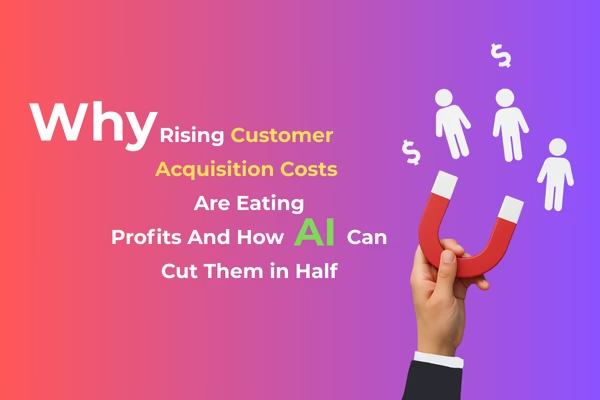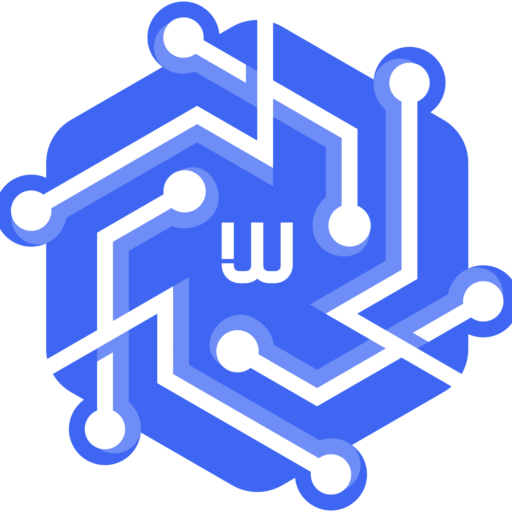Introduction – The Fast-Changing Tech Landscape
Technology is evolving faster than ever. Every year brings new tools, platforms, and innovations that redefine how we work, build, and solve problems. For tech professionals, staying ahead isn’t optional anymore and it’s essential. By focusing on future tech skills and in-demand skills for 2026, you can secure high-paying roles and ensure consistent tech career growth. Understanding which skills will be most valuable in the coming years helps you remain competitive and future-proof your career.
Why 2026 Will Be a Turning Point for Tech Professionals
Global digital transformation continues to accelerate. Automation, AI, and advanced software tools are reshaping job roles and required skill sets. Companies are seeking professionals who can adapt quickly, leverage emerging technology skills, and drive innovation. Continuous learning and flexibility will be the top assets for tech professionals, as traditional job paths evolve into hybrid roles where technical knowledge and human creativity intersect.

Top 10 Technical Skills That Will Shape Careers in 2026
- Artificial Intelligence (AI) & Machine Learning (ML)
- Cloud Computing & DevOps
- Cybersecurity
- Data Science & Analytics
- Full-Stack Development
- Artificial Intelligence in Software Development
- Blockchain & Web3 Technologies
- Internet of Things (IoT)
- AR/VR & Extended Reality (XR)
- AI-Powered Automation & Robotics
1. Artificial Intelligence (AI) & Machine Learning (ML)
AI and ML are no longer niche fields — they’re core skills for nearly every tech-focused career. Organizations are using AI to automate repetitive tasks, predict trends, improve customer experience, and make smarter business decisions. Machine learning engineers and AI specialists are especially in demand because they build the models and systems that power AI-driven applications.
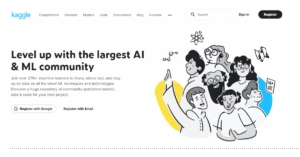
Why it’s in demand:
Predictive analytics: Companies use AI to forecast customer behavior, optimize logistics, and identify market trends.
AI-driven applications: Apps can now adapt to user behavior, personalize experiences, and make decisions automatically.
Automation of processes: AI reduces human error and frees employees for more strategic work.
Industry relevance: Finance, healthcare, e-commerce, logistics, and cybersecurity all require AI/ML expertise.
Key skills to focus on:
Understanding machine learning algorithms: regression, classification, clustering, neural networks
Knowledge of deep learning frameworks: TensorFlow, PyTorch
Familiarity with AI/ML programming languages: Python, R, Java
Data preprocessing, feature engineering, and model evaluation
Cloud AI services: AWS SageMaker, Google AI Platform, Microsoft Azure AI
Free tools and platforms to learn/practice AI & ML:
Google Colab – Free cloud-based Python environment for machine learning experimentation.
Kaggle – Datasets, competitions, and tutorials for AI/ML projects.
TensorFlow Playground – Interactive tool to understand neural networks visually.
Microsoft Learn (AI & ML modules) – Free step-by-step learning paths.
Scikit-learn – Python library for beginners to practice machine learning algorithms.
How this shapes your career:
Gaining AI/ML skills today positions you as a future-ready developer or engineer.
Roles like machine learning engineer, AI developer, data scientist, and AI product specialist will continue to dominate the tech job market in 2026 and beyond.
Even if you’re in a non-technical role, understanding AI helps in strategic decision-making, automation projects, and digital transformation initiatives.
2. Cloud Computing & DevOps
Cloud computing and DevOps are now core skills for modern software development. Most companies follow a cloud-first strategy, hosting infrastructure and applications in the cloud rather than on local servers. Professionals skilled in cloud platforms and DevOps practices are crucial for creating scalable, reliable, and efficient systems.
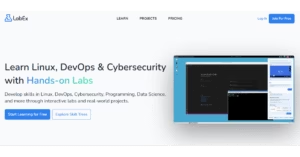
Why it’s in demand:
Scalable infrastructure: Cloud skills allow teams to quickly scale services up or down based on demand, reducing costs and improving efficiency.
Automated deployment pipelines: DevOps practices like CI/CD (Continuous Integration/Continuous Deployment) streamline software delivery and updates.
High availability: Cloud + DevOps ensures applications remain resilient and performant even under heavy traffic.
Industry adoption: Finance, e-commerce, healthcare, and tech startups rely heavily on cloud and DevOps to deliver software faster and safer.
Key skills to focus on:
Cloud platforms: AWS, Google Cloud Platform, Microsoft Azure
Containerization: Docker, Kubernetes
CI/CD tools: Jenkins, GitHub Actions, GitLab CI/CD
Infrastructure as Code: Terraform, Ansible
Monitoring & Logging: Prometheus, Grafana, ELK stack
Free tools and platforms to learn/practice:
AWS Free Tier – Hands-on experience with cloud services at no cost.
Google Cloud Free Tier – Access cloud products and labs for free.
Microsoft Azure Free Account – Practice cloud computing and DevOps tools.
Play with Docker / Play with Kubernetes – Free sandbox for experimenting with containers.
Instruqt – Browser-based interactive labs for DevOps, Kubernetes, and cloud, with a free trial.
LabEx – Offers structured, hands-on labs for Linux, Docker, Kubernetes, and cloud environments.
How this shapes your career:
Professionals with cloud computing and DevOps expertise are highly sought after, as they enable software delivery to be faster, more reliable, and scalable.
Key roles: Cloud Engineer, DevOps Engineer, Site Reliability Engineer (SRE), Infrastructure Architect.
Even software developers benefit from DevOps skills, as they collaborate better with operations teams and deliver higher-quality products.
3. Cybersecurity
With the rise of digital transformation, cybersecurity has become a critical skill for every technology professional. Data breaches, ransomware attacks, and privacy concerns make organizations highly reliant on experts who can protect systems, networks, and sensitive information.
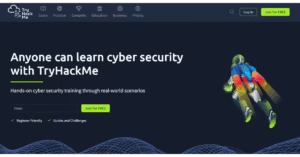
Why it’s in demand:
Rising cyber threats: Hackers are becoming more sophisticated; businesses need skilled professionals to stay ahead.
Compliance and regulations: Companies must comply with GDPR, HIPAA, PCI-DSS, and other security standards.
Business resilience: Cybersecurity experts ensure uninterrupted operations and protect customer trust.
Cross-industry relevance: Finance, healthcare, government, e-commerce, and tech all need strong cybersecurity measures.
Key skills to focus on:
Ethical hacking & penetration testing – identify and fix vulnerabilities.
Network security – protecting networks from unauthorized access or attacks.
Cloud security – securing cloud infrastructure, applications, and data.
Data protection & encryption – safeguarding sensitive information.
Incident response & threat analysis – detecting, analyzing, and responding to attacks.
Free tools and platforms to learn/practice:
TryHackMe – Interactive cybersecurity labs for beginners and advanced learners.
Hack The Box (Free Tier) – Practice ethical hacking in safe, legal environments.
OWASP WebGoat – Free platform for learning web application security.
Kali Linux – Open-source operating system with tools for penetration testing and security testing.
Cybrary – Free courses covering cybersecurity fundamentals, networking, and ethical hacking.
How this shapes your career:
Cybersecurity skills are highly sought after and continue to grow in importance as digital threats increase.
Career roles: Cybersecurity Analyst, Ethical Hacker, Security Engineer, Cloud Security Specialist, and Security Consultant.
Even non-security roles benefit from basic cybersecurity knowledge, ensuring safe coding, cloud deployments, and AI integrations.
4. Data Science & Analytics
In today’s data-driven world, data is the backbone of every business decision. Professionals who are skilled in data science, analytics, and visualization turn raw data into actionable insights that guide strategy, optimize operations, and create competitive advantages.
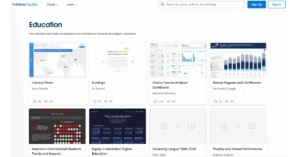
Why it’s in demand:
Informed decision-making: Data professionals help organizations make evidence-based decisions rather than relying on intuition.
Business optimization: Analyzing patterns and trends leads to improved efficiency, cost savings, and revenue growth.
Cross-industry relevance: From finance to healthcare, e-commerce to manufacturing, all sectors need data expertise.
Big data complexity: Organizations need experts to handle large datasets, extract insights, and predict outcomes.
Key skills to focus on:
Data analysis & visualization: Excel, Tableau, Power BI, Looker
Statistical and programming skills: Python, R, SQL
Machine learning basics: Supervised & unsupervised learning
Big data tools: Apache Hadoop, Spark
Data cleaning & preprocessing: Ensuring high-quality data for analysis
Free tools and platforms to learn/practice:
Kaggle – Datasets, competitions, and tutorials for hands-on learning.
Google Colab – Cloud-based Python notebooks for data analysis and ML projects.
Tableau Public – Free platform to practice data visualization and dashboards.
Microsoft Power BI Desktop – Free tool for creating interactive reports.
DataCamp Free Courses – Learn data analysis, visualization, and Python/R basics.
How this shapes your career:
Data Science & Analytics skills are increasingly critical for roles like Data Analyst, Data Scientist, Business Intelligence Developer, and Machine Learning Engineer.
Professionals with strong analytics skills help businesses predict trends, optimize processes, and make smarter, faster decisions.
Even non-technical roles benefit from understanding analytics, enabling better collaboration and data-driven strategy.
5. Full-Stack Development
Full-stack development continues to be one of the most versatile and in-demand tech skills. Professionals who can handle both frontend and backend development are valuable because they can build complete web applications and contribute across multiple layers of a software project.
Why it’s in demand:
Versatility: Full-stack developers can manage end-to-end development, reducing dependency on multiple specialists.
Faster product delivery: Being able to work across the stack accelerates timelines and improves team efficiency.
Cross-industry relevance: Startups, enterprises, and digital agencies all need full-stack expertise to deliver scalable and dynamic applications.
Adaptability: Knowledge of both frontend and backend frameworks ensures developers can quickly adopt new technologies.
Key skills to focus on:
Frontend development: HTML, CSS, JavaScript, React, Angular, Vue.js
Backend development: Node.js, Python (Django/Flask), Java (Spring), PHP (Laravel)
Databases: SQL (MySQL, PostgreSQL), NoSQL (MongoDB)
Version control: Git, GitHub/GitLab
APIs & integrations: REST, GraphQL
Free tools and platforms to learn/practice:
FreeCodeCamp – Learn full-stack development with hands-on projects.
The Odin Project – Comprehensive free curriculum for full-stack web development.
CodeSandbox / StackBlitz – Online IDEs to practice frontend and backend coding.
GitHub – Host projects, practice version control, and collaborate with others.
Repl.it – Browser-based coding environment for full-stack experimentation.
How this shapes your career:
Full-stack development skills open doors to roles like Full-Stack Developer, Web Developer, Frontend Engineer, Backend Engineer, and Software Engineer.
Developers with full-stack expertise are highly adaptable, can lead projects end-to-end, and are critical for startups or small teams where versatility is key.
Even if you specialize later, mastering the full stack provides a strong foundation to grow into advanced tech roles like DevOps, cloud, or AI integration.
6. Artificial Intelligence in Software Development
Artificial Intelligence is redefining how software gets built, tested, and delivered. AI-assisted coding and AI-powered development are transforming traditional workflows — enabling developers to write cleaner code, detect bugs early, and deploy applications faster than ever. In 2025 and beyond, developers who know how to leverage AI tools will lead the next wave of software innovation.
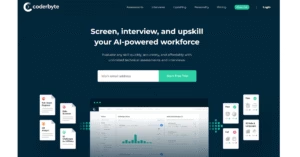
Why it’s in demand:
Accelerated development cycles: AI tools help automate repetitive tasks like debugging, testing, and documentation.
Smarter code assistance: AI-driven suggestions improve code accuracy, maintainability, and security.
Quality assurance: AI detects performance issues and potential vulnerabilities before release.
Productivity boost: Teams achieve more in less time with AI-driven automation and optimization.
Competitive advantage: Companies adopting AI in development gain speed, scalability, and cost efficiency.
Key skills to focus on:
AI-assisted coding: GitHub Copilot, Tabnine, CodeWhisperer
Automated testing: Testim, Mabl, Functionize
AI for DevOps: AIOps tools like Dynatrace and Splunk for intelligent monitoring
Machine learning integration: TensorFlow, PyTorch for embedding ML into apps
Natural language processing (NLP): Integrating chatbots or smart assistants into software
Free tools and platforms to explore:
GitHub Copilot Free Trial – AI coding assistant that suggests real-time code completions.
Replit Ghostwriter (Free Tier) – Helps generate and refactor code within an online IDE.
Codeium – Free AI pair programming tool supporting multiple languages.
Kite – AI autocompletion plugin for Python and other popular languages.
Google Colab + OpenAI API (Free Credits) – Experiment with custom AI models for app features.
How this shapes your career:
Developers with AI expertise can transition into roles like AI Software Engineer, Automation Architect, or Machine Learning Developer.
Mastering AI tools enhances collaboration, boosts speed, and makes developers indispensable in agile, AI-first teams.
As AI becomes integral to modern software engineering, professionals who adapt early will lead innovation rather than follow it.
7. Blockchain & Web3 Technologies
Blockchain and Web3 are reshaping how digital systems store, verify, and exchange information. Beyond cryptocurrency, blockchain technology powers secure financial transactions, transparent supply chains, digital identity management, and decentralized apps (dApps). As enterprises embrace decentralization, professionals skilled in blockchain development, smart contracts, and Web3 protocols are becoming indispensable in future tech ecosystems.

Why it’s in demand:
Decentralized innovation: Web3 enables peer-to-peer systems that eliminate intermediaries and improve transparency.
Smart contracts: Automated, tamper-proof digital agreements streamline transactions and reduce fraud.
Data integrity: Blockchain ensures secure and immutable record-keeping — essential for industries like finance, logistics, and healthcare.
Tokenization & digital assets: NFTs, DAOs, and token economies are transforming business models and ownership structures.
Enterprise adoption: Major companies and governments are exploring blockchain for compliance, identity, and process automation.
Key skills to focus on:
Blockchain fundamentals: Distributed ledger, consensus mechanisms, hashing, cryptography
Smart contract development: Solidity, Rust, Web3.js, Truffle, Hardhat
Decentralized application (dApp) development: Ethereum, Polygon, Solana
Web3 tools & libraries: Ethers.js, IPFS, MetaMask integration
Security & auditing: Smart contract testing, vulnerability assessment, gas optimization
Free tools and platforms to learn/practice:
Alchemy University – Free learning path for blockchain and Web3 development.
Ethereum Remix IDE – Web-based environment to write, test, and deploy smart contracts.
Moralis – Free Web3 development platform to build dApps faster.
CryptoZombies – Gamified platform to learn Solidity and blockchain coding basics.
Thirdweb (Free Tier) – Simplifies NFT and smart contract deployment without heavy coding.
How this shapes your career:
Blockchain expertise opens opportunities in roles like Blockchain Developer, Smart Contract Engineer, Web3 Architect, and Security Auditor.
Professionals who understand decentralized systems will drive innovation in fintech, real estate, identity management, and gaming.
As digital ownership, transparency, and trust become central to future technologies, Web3-ready professionals will remain at the forefront of the tech revolution.
8. Internet of Things (IoT)
The Internet of Things (IoT) is transforming how physical devices interact with the digital world. From smart homes to industrial automation, IoT connects sensors, devices, and applications into intelligent ecosystems that collect, analyze, and act on real-time data. Professionals with IoT development skills can design systems that improve efficiency, monitoring, and automation across multiple industries.
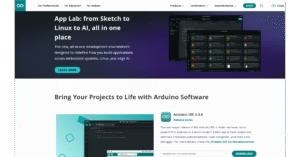
Why it’s in demand:
Connected intelligence: IoT devices enable seamless communication between machines and systems.
Operational efficiency: Real-time data helps organizations monitor performance, reduce waste, and predict maintenance needs.
Cross-industry adoption: IoT powers innovations in healthcare, manufacturing, logistics, agriculture, and smart cities.
Edge computing & AI integration: Combining IoT with edge AI enhances speed, security, and scalability.
Data-driven decisions: IoT analytics provides insights that improve customer experience and business strategy.
Key skills to focus on:
IoT platforms: AWS IoT, Microsoft Azure IoT Hub, Google Cloud IoT Core
Embedded systems & sensors: Arduino, Raspberry Pi, ESP32
Programming languages: Python, C, C++, JavaScript (Node.js)
Networking protocols: MQTT, CoAP, HTTP, Bluetooth, Zigbee
Data handling & security: Edge computing, cloud integration, encryption techniques
Free tools and platforms to learn/practice:
ThingSpeak – Free IoT analytics platform for data collection and visualization.
Blynk IoT – Free version for prototyping IoT apps and device control.
Arduino IDE – Open-source environment to program and test IoT hardware.
Node-RED – Free, flow-based tool for connecting APIs, devices, and services.
IBM Watson IoT Platform (Lite Plan) – Cloud-based IoT environment with free learning tier.
How this shapes your career:
IoT expertise opens career paths like IoT Developer, Embedded Systems Engineer, Edge Computing Specialist, and IoT Data Analyst.
With IoT becoming the foundation of smart cities, intelligent healthcare, and industrial automation, professionals skilled in this area will lead the next wave of connected innovation.
Combining IoT knowledge with AI, cloud, and data analytics gives professionals a future-proof advantage in building scalable, intelligent systems.
9. AR/VR & Extended Reality (XR)
AR/VR technology skills are changing the way people interact with digital environments. From immersive training programs to metaverse applications, professionals skilled in augmented and virtual reality are shaping the future of human-computer interaction.
10. AI-Powered Automation & Robotics
AI automation, robotic process automation (RPA), and industrial AI streamline processes in manufacturing, logistics, and service industries. These skills help professionals design systems that enhance productivity while reducing manual effort.
How to Prepare for These Skills
The best approach to future-proof tech careers is hands-on learning. Use online platforms, real-world projects, and certifications to gain expertise. Building a portfolio or contributing to open-source projects demonstrates practical experience and sets you apart in the competitive job market.
The Future Workplace: Blending Tech and Human Intelligence
While technical expertise is critical, creativity, critical thinking, and communication remain equally important. Future tech skills blend human insight with AI-driven efficiency. Professionals who combine technical skills with soft skills will lead teams and drive innovation effectively.
Conclusion – Start Building Tomorrow’s Skills Today
The tech landscape in 2026 will favor those who adapt and learn continuously. Focus on mastering top technical skills 2026, emerging technology skills, and best tech skills for the future to ensure your career remains high-paying tech skills 2026 and future-proof tech careers.
The future belongs to those who prepare for it today. Start your 2026 journey with the right skills and mindset.
Frequently Asked Questions (FAQs)
Q1: What tech skills will be in demand in 2026?
Ans: In 2026, skills in AI and machine learning, cloud computing, cybersecurity, full-stack development, blockchain, and IoT development are expected to be highly sought after. Professionals with these future tech skills will have strong opportunities across industries.
Q2: Which technical skills will define future careers?
Ans: Careers in 2026 will be shaped by AI-powered software development, data science and analytics, DevOps and automation, and AR/VR technology skills. Combining these with problem-solving and adaptability will make professionals stand out in the evolving tech landscape.
Q3: What are the best technologies to learn for career growth?
Ans: Learning AI and machine learning, cloud platforms like AWS, blockchain development, full-stack frameworks, and IoT platforms are considered some of the best tech skills for the future. These technologies align with high paying tech skills 2026 and help secure future-proof tech careers.
Q4: What are the top programming and AI skills for 2026?
Ans: The top programming and AI skills include Python, JavaScript, TensorFlow, PyTorch, AI-assisted coding, and AI-powered automation tools. Mastery of these skills will help professionals design AI-driven applications and automation solutions that are in high demand.
Q5: Which future jobs require AI and cloud skills?
Ans: Future roles like AI engineers, machine learning specialists, cloud architects, data analysts, and DevOps engineers will heavily rely on AI development and cloud computing skills. Companies adopting digital transformation 2026 need experts who can integrate AI and cloud technologies efficiently.

















